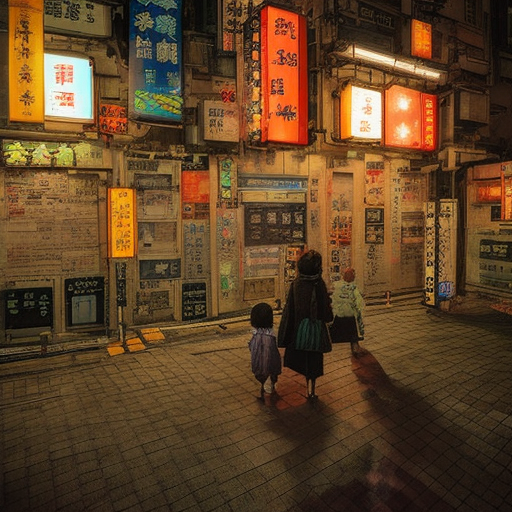Tokyo Godfathers by Satoshi Kon
Summary: Tokyo Godfathers is a heartwarming and comedic animated film directed by Satoshi Kon. It follows the journey of three homeless individuals who find an abandoned baby on Christmas Eve and embark on a quest to reunite the child with her family. Along the way, they encounter various obstacles and discover the true meaning of family and redemption.
Main Cast and Crew:
- Director: Satoshi Kon
- Writers: Satoshi Kon, Keiko Nobumoto
- Voice Cast: Toru Emori as Gin, Yoshiaki Umegaki as Hana, Aya Okamoto as Miyuki, Shozo Iizuka as Yasuo, Seizo Kato as Oota
- Music Director: Keiichi Suzuki
- Director of Photography: Katsutoshi Sugai
- Producers: Masao Takiyama, Satoshi Kon, Shinichi Kobayashi, Taro Maki
Plot:
Set in the bustling city of Tokyo, the film introduces us to three unlikely companions: Gin, a middle-aged alcoholic; Hana, a transgender woman; and Miyuki, a runaway teenager. On a cold Christmas night, they stumble upon an abandoned baby girl and decide to take her under their wing. Determined to find her parents, they embark on a thrilling adventure through the city’s dark underbelly.
As they search for clues, the trio encounters a series of eccentric characters and faces their own personal demons. Gin, haunted by his past, struggles with alcoholism and guilt. Hana, who dreams of becoming a mother, battles societal prejudice and discrimination. Miyuki, burdened by her troubled family history, yearns for a fresh start. Together, they form an unconventional family, supporting and challenging each other along the way.
The plot unfolds with unexpected twists and turns, blending elements of comedy, drama, and suspense. Through their encounters, the characters confront themes of forgiveness, redemption, and the power of human connection. As they navigate the harsh realities of Tokyo’s streets, they discover that their own personal journeys are intertwined with the fate of the abandoned baby.
Themes and Motifs:
Tokyo Godfathers explores the theme of redemption, highlighting the transformative power of compassion and forgiveness. The characters, burdened by their past mistakes and regrets, find solace in their selfless act of taking care of the baby. The film also addresses societal issues such as homelessness, discrimination, and the struggles faced by marginalized individuals.
The motif of family is central to the film, as the three protagonists form an unconventional yet loving family unit. Their shared experiences and unconditional support create a sense of belonging and purpose. Additionally, the film touches on the theme of fate, as the characters’ paths intertwine in unexpected ways, leading to a heartwarming conclusion.
Reception and Legacy:
Upon its release, Tokyo Godfathers received critical acclaim for its unique storytelling, vibrant animation, and emotional depth. It won several awards, including the Best Animation Film at the 58th Mainichi Film Awards and the Excellence Prize at the 2003 Japan Media Arts Festival. The film’s legacy in cinema is evident in its influence on subsequent animated works, inspiring filmmakers to explore complex themes and unconventional narratives.
Recommendation:
Tokyo Godfathers is a must-watch for fans of Satoshi Kon’s work and those seeking a heartwarming and thought-provoking animated film. Its blend of comedy, drama, and social commentary creates a captivating narrative that will resonate with audiences of all ages. The film’s beautiful animation, memorable characters, and powerful themes make it a true gem in the world of animation.
Memorable Quote:
“Life is just a series of peaks and troughs. And you don’t know whether you’re in a trough until you’re climbing out, or on a peak until you’re coming down. And that’s it, you know, you never know what’s round the corner. But it’s all good. ‘If you want the rainbow, you’ve gotta put up with the rain.’ Do you know which philosopher said that? Dolly Parton. And people say she’s just a big pair of tits.” – Hana












